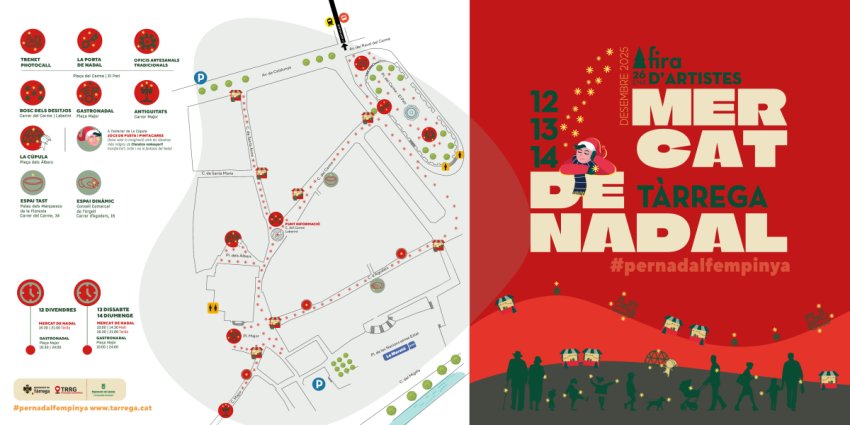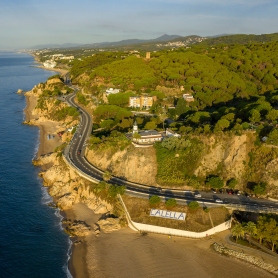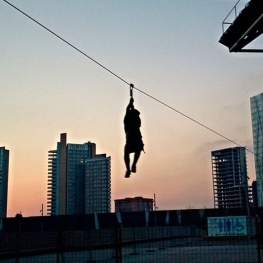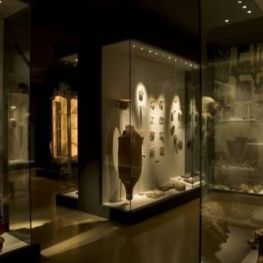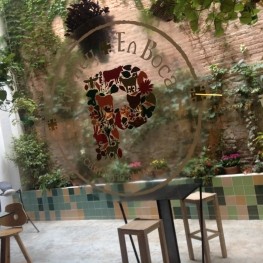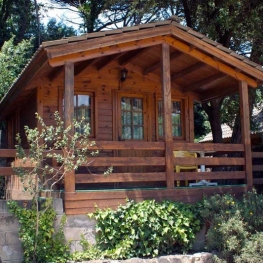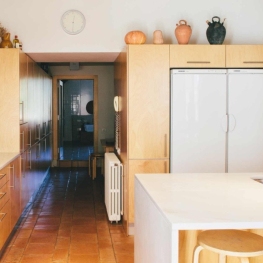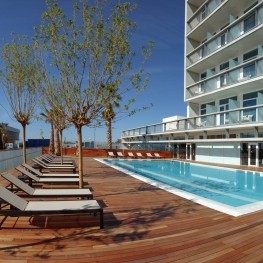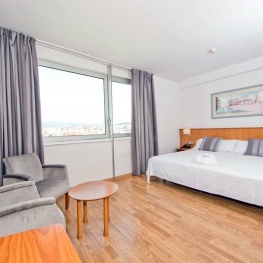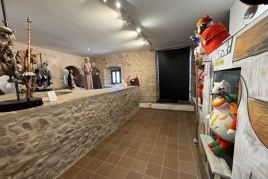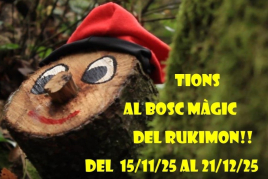Squirrel route in Premià de Dalt
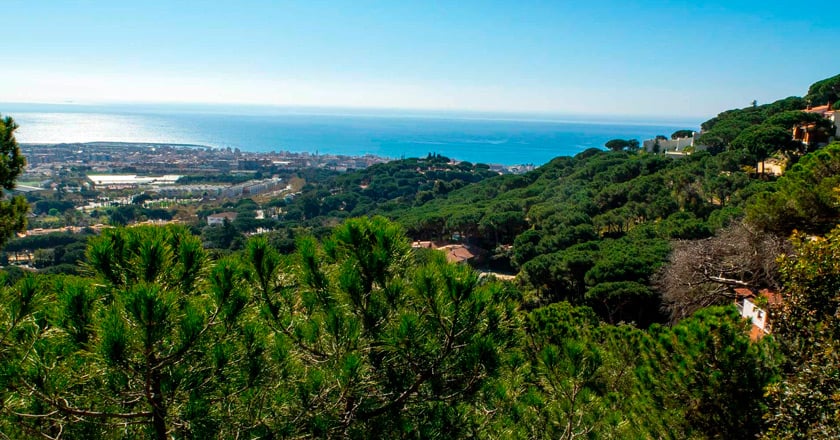
The walk will take us to know the area of San Mateo, toponym that share the hermitage, the source and the hill, the highest point of the crest, that reaches 499 meters of height. Along the way we will have the opportunity to discover some of these elements.
To reach the exit point of the itinerary it will be necessary to go to the town of Premià de Dalt. Leaving the Casa de la Villa building on your right hand side , we will climb the Premià stream. The asphalted road will take us directly to the archaeological park of the Silla del Obispo, which replaced the old popular denomination of the hill of the Two Pines root of the archaeological find in the area of some remains of an Iberian town of the Vth centuries I aC (deposit of the Chair of the Bishop).
The Chair of the Bishop
The hill, although with some lush pine, gives us a beautiful view of the descent of the mountains towards the plains of the Maresme, with some bell towers on the reddish roofs of the houses surrounded by orchards and fields of carnations.
Secondly, we are presented with a less traditional view of the mottled urbanization of the mountains and the coastal and urban populations that are almost in the sea.
 In the Iberian village of Silla del Obispo (1) we find the exit point of the itinerary and the sign that indicates it. From the two roads, take the one on the right, which runs parallel to the coastline. The walk, which begins with a marked slope, plunges us into the Mediterranean forest, an evergreen vegetation, dense and full of essences: pines, holm oaks, carobs, jars, rosemary, woods...
In the Iberian village of Silla del Obispo (1) we find the exit point of the itinerary and the sign that indicates it. From the two roads, take the one on the right, which runs parallel to the coastline. The walk, which begins with a marked slope, plunges us into the Mediterranean forest, an evergreen vegetation, dense and full of essences: pines, holm oaks, carobs, jars, rosemary, woods...
Of the diverse species of fauna that live in these forests one of the most present in the popular memory and at the same time, perhaps, easier to detect, is the squirrel. Everyone who has a habit of going to the mountain, from time to time, has had the opportunity to see some. Unfortunately it had been a piece quoted by the hunters and taxidermy.

The squirrel lives in forests that provide for its food: pine nuts, hazelnuts, acorns... although sometimes also eat mushrooms, barks, sprouts and even some insect or screws. It will not be strange that we found by land some pine cones gnawed by the squirrel.
After the climb, an indicator indicates a change of direction to the left and, after a short section of flat road, a sign diverts us towards a new slope to the right. At the end of the ascent we find three elements that will guide us: on the right hand side, the farmhouse of Can Bernadó (2); to the left, a substation of electrical energy; in front, the ridge road that crosses the sierra (GR 92).
We take the track to the left and, a few meters away, we find an indicator that invites us to take a new turn to the right towards the source of San Mateo (3).
The source and hermitage of San Mateo
 Hidden in a hollow to the right of the road we find the fountain of San Mateo. Worth going down to cool off.
Hidden in a hollow to the right of the road we find the fountain of San Mateo. Worth going down to cool off.
In front, a large raft, now in disuse, illustrates the concept of water economy that had the traditional life in farmhouses, in a time when there was no running water.
We recover the road and, almost immediately, the indicator guides us towards a path to the left, that rises, immersed in a thick vegetation. in a few minutes, this narrow and somber corridor opens in a clear diaphanous, with the hermitage of San Mateo (4) in the center.
 The hermitage of San Mateo has been documented since the 10th century, in the 15th century it was named San Mateo del Bosque and during the 16th and 17th centuries it was inhabited by hermits. It is of Romanesque origin and it emphasizes the smallness of the forms: a vault of tiny tube, that receives barely two rows of seats; a semicircular steps, guarded by a cypress, and the belfry, which surprises by its transverse orientation.
The hermitage of San Mateo has been documented since the 10th century, in the 15th century it was named San Mateo del Bosque and during the 16th and 17th centuries it was inhabited by hermits. It is of Romanesque origin and it emphasizes the smallness of the forms: a vault of tiny tube, that receives barely two rows of seats; a semicircular steps, guarded by a cypress, and the belfry, which surprises by its transverse orientation.
The hermitage has the old house of the hermits attached, and both have been restored or expanded at different times.
We start the return to the point of origin climbing the walk, with pines on both sides, coming out of the hermitage. At sight, sheltered to the west, stands the splendid farmhouse of Can Riera (5). We will not arrive so that a sign points us a narrow path to the left where we have to start descending.
Soon, we will find an esplanade with a large fig tree in the center that will take us to the ridge. We cross it and an indicator makes us take another dirt road that opens before us. In this way we arrive again at a wooded area with one more landmark (6).
Bad Time Plan
The geological substrate of this mountain range, formed by granites, undergoes a process of chemical weathering that causes the formation of a very unstable sand, called sandstone, which has a very high degree of erosion.

Through the torrents and streams characteristic of the Maresme, this sand is deposited on the beaches due to the steep slopes. Road traffic increases the rate of erosion and the danger of fires. It is necessary that we all have it in mind and that extreme caution in our walks.
Out of itinerary, if we continue straight the road, we will arrive at the hill of Baldiri, where we can enjoy good views and where we find a watch tower for the prevention of forest fires in the park.

If we follow the itinerary, we must take the road to the left that returns us to the Bishop's Chair. From here we start a sharp descent, until in a new well-marked fork, we have to take again the path on the right that makes descent.
What to do
Museu Abelló de Mollet del Vallès
Mollet del Vallès (a 11.2 Km)The Abelló Museum is located in a modernist building that was inaugurated…
Barcelona Bosc Urbà
Barcelona (a 14.9 Km)Urban adventure park located in the Plaza del Fòrum in Barcelona, where…
Museu Arxiu Tomàs Balvey
Cardedeu (a 14.5 Km)The MATBC houses the collection of its creator, Tomàs Balvey y Bas…
Where to eat
Taverna ümet
Sabadell (a 20.4 Km)Taverna Ümet is a restaurant in Sabadell offering creative tapas and flavorful…
La Calma, el Bellver
Tagamanent (a 28.2 Km)At the Masía Restaurante El Bellver, from 1:00 p.m. to 3:30 p.m.,…
Restaurant Windsor
Barcelona (a 20.1 Km)The Windsor restaurant, located in Barcelona, is a benchmark of contemporary Catalan…
Where to sleep
Càmping El Vedado
Vallromanes (a 4.9 Km)Mountain campsite located near Barcelona. Ideal for visiting Barcelona since it is…
Ca l'Andreu Ecoturisme
Tiana (a 6.4 Km)Spending a few days in an authentic 15th-century farmhouse is priceless. Renovated…
Atenea Port Barcelona Mataró
Mataró (a 8.7 Km)A new hotel located in the port of the maritime city of…
Aparhotel Atenea Vallès
Granollers (a 11.5 Km)The Atenea Valles Aparthotel Granollers is located in the commercial center of…

